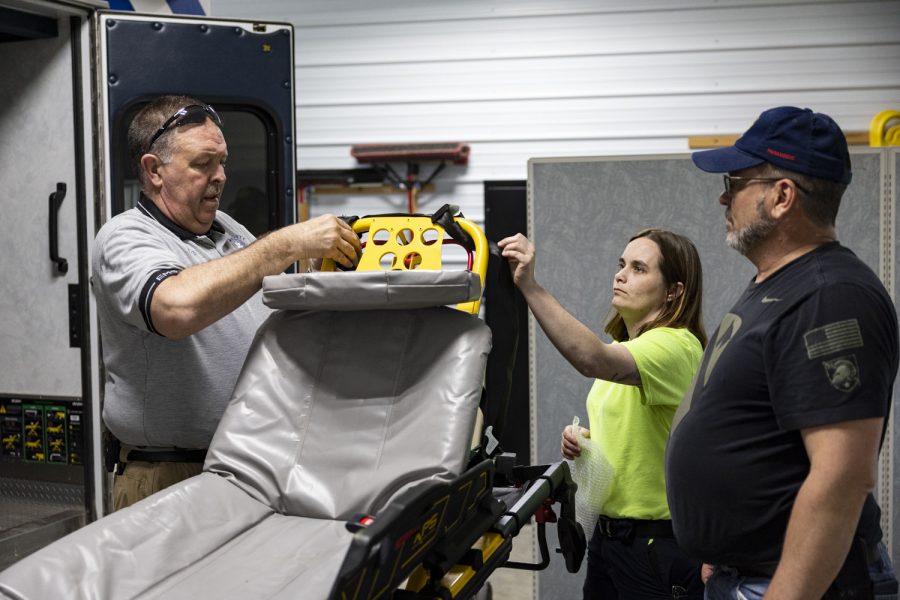Experts: Creative solutions could help hospitals
April 23, 2023
Dan Conry, Jen Martin and Jim Ingham adjusts a stretcher at the ambulance base in Columbus Junction, Iowa on Friday, March 24, 2023.
As rural health care struggles to cope with financial pressures and some communities face losing access to vital health care resources, Keith Muller, the director of the Rural Policy Research Institute’s Center for Health Policy Analysis and University of Iowa professor of Health Management and Policy, said hospitals are using innovative financial strategies to stay afloat.
Muller said rural hospitals are reducing the number of services they provide and joining coalitions to spread out financial risk and impacts across multiple hospitals.
“So many [rural hospitals] have adopted or adapted by changing their service mix, by getting involved in regional networks doing other things that actually have improved their financial condition,” Muller said.
Technology also might be part of the solution to continued access to care.
During COVID-19, telehealth, video, or phone call appointments with health care professionals helped patients continue to access primary care when face-to-face appointments were not possible due to the efforts to curb the spread of the virus.
Telehealth didn’t fade with the pandemic; it flourished as a way for providers to connect with patients wherever they are.
Whitney Zahnd, a University of Iowa assistant professor of health management and policy, said telehealth is an innovative way to connect with rural patients and solve staffing shortages in rural hospitals, which many hospitals face on top of financial pressures.
Zahnd said the use of remote physician care is becoming increasingly popular. She said that larger, more urban hospitals in the state can help smaller rural facilities by consulting with physicians and patients via video conferencing to elevate the level of care offered at that facility.
“Those are a couple of examples on the hospital side that can help ensure that patients get the care they need and help prevent unnecessary transfers if they can get the care they need in the hospital they’re currently in,” Zahnd said.
Additionally, the expansion of the duties of some health care providers, such as physician assistants and advanced nurse practitioners, would help mend the health care worker shortage and create easier access to care for rural patients, Zahnd said.
“Expanding the scope of practice [for these providers] would allow for nurse practitioners and physician’s assistants to practice a little more independently with less oversight from physicians,” Zahnd said. “And those kinds of practitioners really provide a lot of care in rural areas.”
